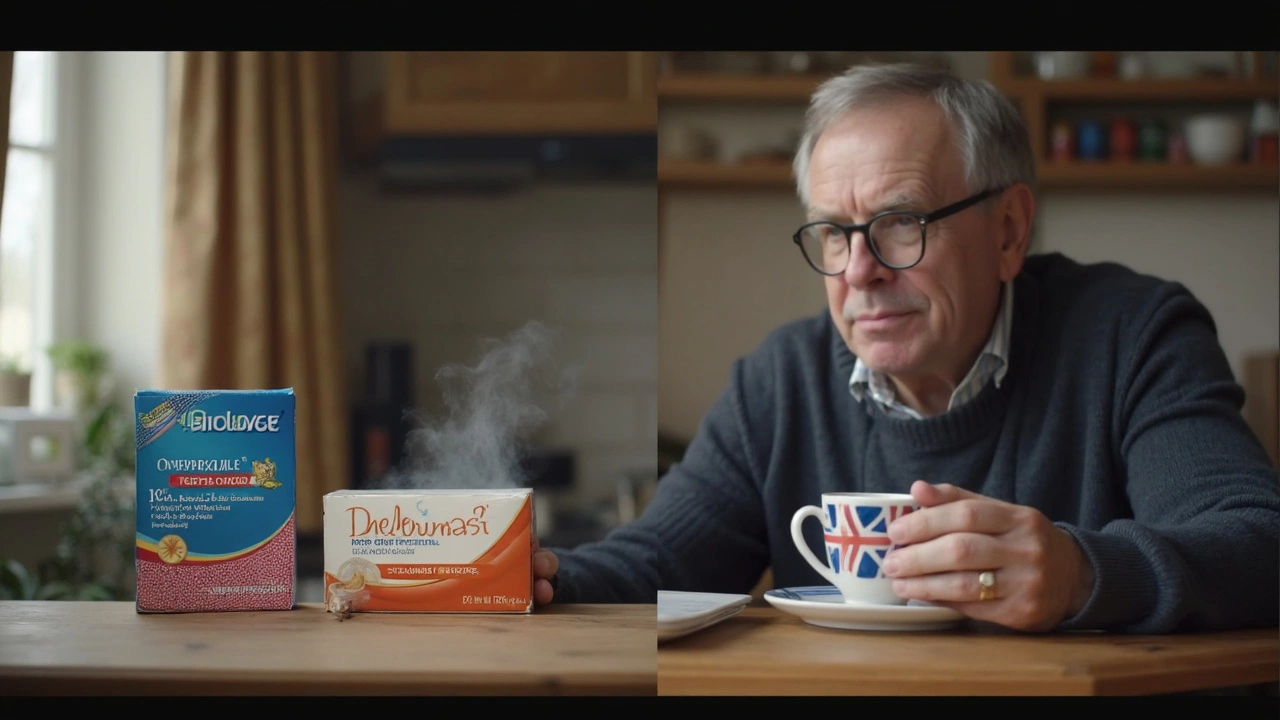Alcohol interactions: what to know when taking medication
Mixing alcohol with medicines is common, and not always harmless. A glass of wine can make a drug less effective, raise side effects, or trigger dangerous reactions. This short guide helps you spot risky combos, make simple safety choices, and know when to call your pharmacist or doctor.
Quick rules to stay safe
Read the patient leaflet and warning labels. Ask your pharmacist the first time you get a new prescription. If a medication causes drowsiness, avoid alcohol - combining them boosts sleepiness, slows breathing, and reduces coordination. Never mix alcohol with opioids, benzodiazepines, or strong sleep aids. Avoid heavy drinking while you take medicines for blood pressure, diabetes, mood, or liver conditions.
Common drug groups that clash with alcohol
Antidepressants: Some antidepressants make alcohol’s depressant effect stronger. For bupropion (Wellbutrin) alcohol may raise seizure risk in vulnerable people. Mood stabilizers and antipsychotics can also increase sedation and confusion with alcohol.
Blood pressure drugs: Medicines like lisinopril, atenolol, or felodipine can lower blood pressure. Alcohol can add to that drop and cause dizziness or fainting, especially when standing up fast.
Diabetes drugs: Alcohol can hide or worsen signs of low blood sugar. If you take insulin or sulfonylureas, drinking without adjusting food or monitoring glucose raises risk. With newer drugs like semaglutide (Rybelsus), check with your prescriber about alcohol and nausea or blood sugar changes.
Antibiotics and infection drugs: Some antibiotics - metronidazole and tinidazole are common examples - cause a disulfiram-like reaction: flushing, nausea, and rapid heartbeat when mixed with alcohol. When in doubt, avoid alcohol during treatment and for 48 to 72 hours after.
Pain meds and sedatives: Opioids, strong pain relievers, and muscle relaxants plus alcohol can slow breathing and cause life-threatening sedation. Even small amounts of alcohol can be risky.
Liver-metabolized drugs and acetaminophen: Many drugs clear through the liver. Heavy drinking plus regular acetaminophen raises liver injury risk. If you have alcohol-related liver disease, ask a doctor before taking new medicine.
Look up your medicine on a trusted interaction checker like Drugs.com or NHS pages. Call your pharmacist if the leaflet isn't clear. If you plan to drink socially, ask whether a single drink is safe or if you should avoid alcohol for the whole course. Watch for danger signs: severe drowsiness, breathing changes, fainting, fast heartbeat, or severe nausea - seek urgent care.
A quick habit change prevents most problems. Read labels, ask questions, and avoid mixing alcohol with sedatives or medicines you don't understand. Your pharmacist is the easiest safety check.
Older adults and people with chronic conditions need extra care. Age and long-term illness change how your body handles alcohol and drugs, raising fall and overdose risk. If you care for someone on multiple medicines, keep a list and bring it to every medical visit. For surgery or dental work, stop alcohol if advised and tell the team about your meds. When unsure, slow down - skip drinking until sure again.

